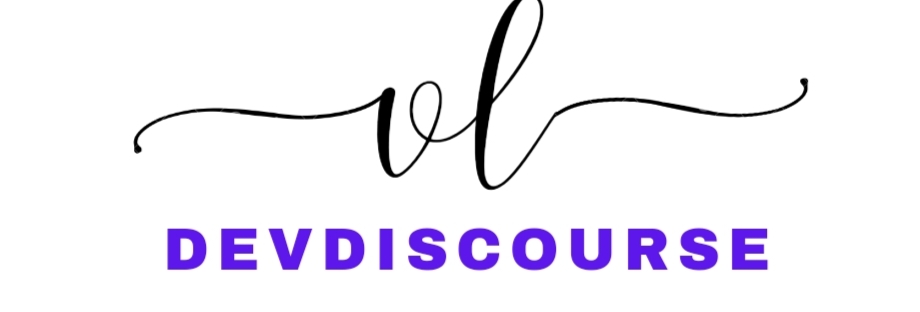Understanding Parenting Styles: An In-Depth Analysis of Their Impact on Child Development
Parenting styles have long been a subject of fascination and debate among psychologists, educators, and parents. How a parent raises their child significantly impacts their social, emotional, and cognitive development. There are four main types of parenting styles, each with its unique characteristics, and understanding these can help parents reflect on their approach and make informed decisions that support their child’s growth.
In this article, we’ll delve into the different parenting styles, their key characteristics, how they influence child development, and a visual breakdown of their distribution based on global trends. By the end, you’ll have a clearer idea of how these styles impact children and the common questions that arise when discussing parenting strategies.
The Four Parenting Styles
Psychologists in the 1960s defined four primary parenting styles based on the work of Diana Baumrind and further research by Maccoby and Martin. These styles are:
- Authoritative Parenting
- Authoritarian Parenting
- Permissive Parenting
- Uninvolved Parenting
Each style carries distinct approaches to discipline, communication, and expectations. Let’s explore these in detail.
1. Authoritative Parenting
Authoritative parenting is often considered the most effective and balanced approach. It combines firm discipline with warmth and open communication, fostering a healthy environment where children can thrive.
Characteristics:
- High responsiveness and high demands.
- Clear boundaries and rules but with flexibility.
- Encourages independence while providing guidance.
- Open communication, where the child’s opinions are valued.
Impact on Child Development:
- Children often develop high self-esteem and social competence.
- They are better equipped to regulate emotions.
- These children tend to do well academically and exhibit fewer behavioral problems.
2. Authoritarian Parenting
Authoritarian parenting is characterized by strict rules and high expectations but with little warmth or communication. Parents employing this style often expect obedience without questioning and enforce rigid discipline.
Characteristics:
- High demands but low responsiveness.
- Little room for open dialogue between parent and child.
- Punishments are frequent, and rules are non-negotiable.
Impact on Child Development:
- Children raised in authoritarian environments may struggle with self-esteem and experience anxiety.
- They might be well-behaved but may lack social competence and emotional regulation.
- Such children often develop a sense of rebellion or dependence on authority.
3. Permissive Parenting
Permissive parents are lenient, placing few demands or rules on their children. While these parents are often nurturing and communicative, they tend to avoid confrontation and discipline, leaving the child largely to their own devices.
Characteristics:
- High responsiveness but low demands.
- Rarely enforce consistent rules.
- Act more like friends than authoritative figures.
Impact on Child Development:
- Children may struggle with self-control and exhibit more behavioral issues.
- They often lack respect for authority figures.
- While these children are usually emotionally expressive, they may face challenges in structured environments like school.
4. Uninvolved Parenting
Uninvolved or neglectful parenting is when a parent is detached from their child’s life, offering little guidance, nurturing, or attention. This can result from various factors, including parental stress, personal struggles, or simply a lack of understanding of their child’s needs.
Characteristics:
- Low demands and low responsiveness.
- Minimal interaction between parent and child.
- Little to no involvement in the child’s education or social life.
Impact on Child Development:
- Children raised in uninvolved environments often exhibit behavioral problems.
- They may struggle academically and have poor emotional regulation.
- These children tend to develop low self-esteem and attachment issues.
Parenting Style Repartition: A Visual Breakdown
Understanding how these parenting styles are distributed across different societies is crucial for analyzing their impact. Societal values, cultural expectations, and socio-economic factors all play a role in the prevalence of each style.
In the United States, for example, authoritative parenting tends to be more common, particularly among educated middle- to upper-class families. In contrast, authoritarian parenting is more common in cultures where obedience and respect for authority are highly valued, such as in certain parts of Asia and Latin America.
Recent surveys suggest the following approximate distribution of parenting styles globally:
- Authoritative: 45% – 50%
- Authoritarian: 20% – 25%
- Permissive: 15% – 20%
- Uninvolved: 5% – 10%
Cultural and Societal Influence on Parenting Styles
While Baumrind’s parenting styles offer a useful framework, they don’t fully account for cultural nuances. For example, in collectivist cultures, authoritarian parenting may be more common and valued for teaching children the importance of social hierarchy and family cohesion. In contrast, individualistic societies, such as those in many Western countries, often favor authoritative parenting, where autonomy and self-expression are encouraged.
The way a society values education, obedience, and emotional expressiveness can heavily influence which parenting style is most common.
The Role of Technology in Parenting Styles
Technology has introduced new dynamics into parenting, influencing how parents manage their children’s behavior and education. With the rise of smartphones and tablets, permissive parenting may lead to children spending excessive time on screens, while authoritative parents may enforce structured, balanced screen time.
However, technology can also support positive parenting strategies. Educational apps, online resources, and even parenting communities offer valuable tools for parents seeking to adopt more effective parenting styles. At the same time, parents must be cautious of the negative effects of overexposure to technology on child development.
Parenting Styles and Emotional Well-being
A child’s emotional well-being is often a reflection of the parenting style they experience at home. For instance:
- Authoritative parenting promotes emotional stability and resilience.
- Authoritarian parenting can lead to fear-based relationships, limiting emotional expression.
- Permissive parenting may result in emotional outbursts or difficulty managing stress.
- Uninvolved parenting often results in emotional neglect, leaving children without the emotional tools to navigate challenges.
Understanding how these styles impact emotional development helps parents adopt strategies that foster secure attachment, emotional intelligence, and well-being.
Parenting Styles and Academic Success
Parenting style directly correlates with a child’s academic success. Studies show that children of authoritative parents tend to perform better academically due to the balance of support and structure provided at home. In contrast:
- Authoritarian parenting may lead to high academic achievement in the short term, but children may struggle with creative problem-solving and critical thinking.
- Permissive parenting might result in children lacking the discipline needed to succeed academically.
- Uninvolved parenting often leads to poor academic outcomes, as these children receive little guidance or support.
The ability to foster curiosity, perseverance, and a love for learning can often be traced back to how parents engage with their children academically.
Parenting Styles: Flexibility and Adaptation
One of the most important aspects of parenting is understanding that no single style is perfect. Parents can adopt different styles based on circumstances, child temperament, and personal beliefs. Flexibility is key to successful parenting, as it allows parents to adapt their approach to meet their child’s unique needs.
For example, a parent might take an authoritative approach when guiding their child through schoolwork but adopt a more permissive stance during playtime to encourage creativity and self-expression.
Conclusion
Parenting styles have a profound impact on children’s development, influencing everything from emotional well-being to academic success. While authoritative parenting is often considered the most balanced and effective, other styles may also be appropriate depending on cultural contexts and individual circumstances.
By understanding the characteristics and outcomes associated with each parenting style, parents can reflect on their approaches and adjust to better support their children’s growth. Flexibility, communication, and attentiveness are key to fostering a positive and nurturing environment that helps children thrive.
Frequently Asked Questions (FAQs)
- Can parenting styles change over time? Yes, many parents adapt their parenting styles as their children grow or as family dynamics change. Flexibility is important in responding to different stages of child development.
- Which parenting style is best for academic success? Research suggests that authoritative parenting is most closely associated with academic success, as it balances high expectations with emotional support.
- Can a combination of parenting styles be effective? Absolutely. Many parents use a combination of styles depending on the situation, balancing strictness with warmth and flexibility.
- How does culture affect parenting styles? Cultural values significantly influence parenting styles. For instance, collectivist cultures may favor authoritarian parenting, while individualist cultures often prefer authoritative methods.
- Is uninvolved parenting always harmful? Uninvolved parenting is generally associated with negative outcomes like emotional neglect and poor academic performance, but some degree of independence can be beneficial depending on the child’s needs.
- How do parenting styles impact a child’s self-esteem? Authoritative parenting tends to foster high self-esteem due to the balance of support and independence. In contrast, authoritarian and uninvolved styles may lead to lower self-esteem.
- What role does technology play in modern parenting? Technology can both help and hinder parenting. It offers tools for education and communication but also requires careful management to avoid overexposure and screen dependency.




